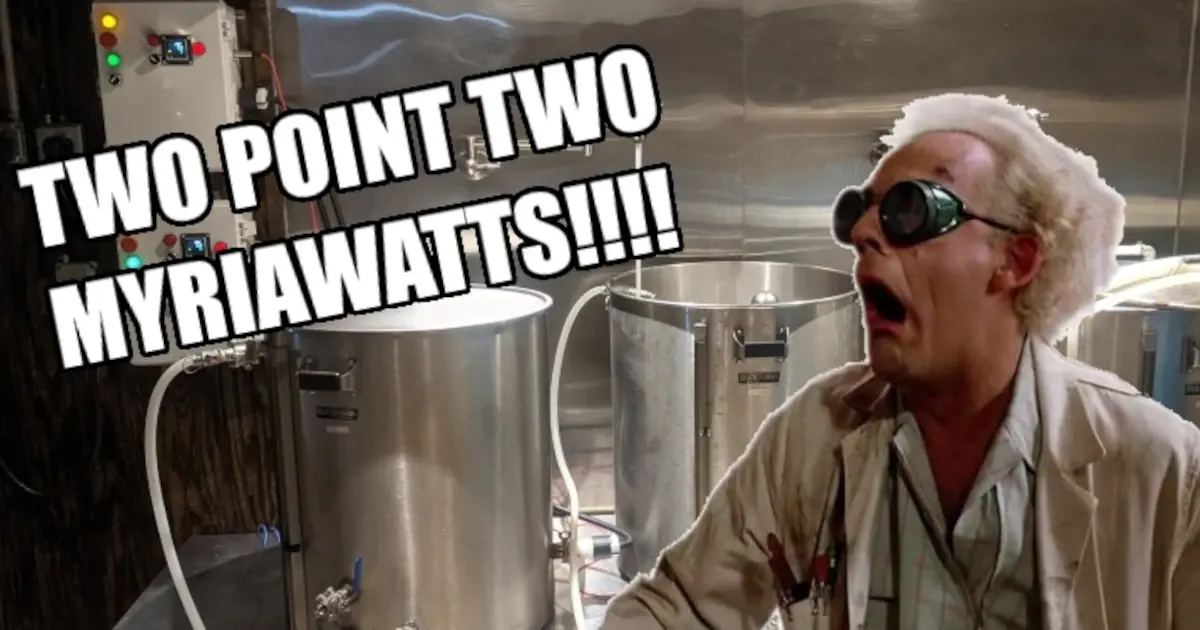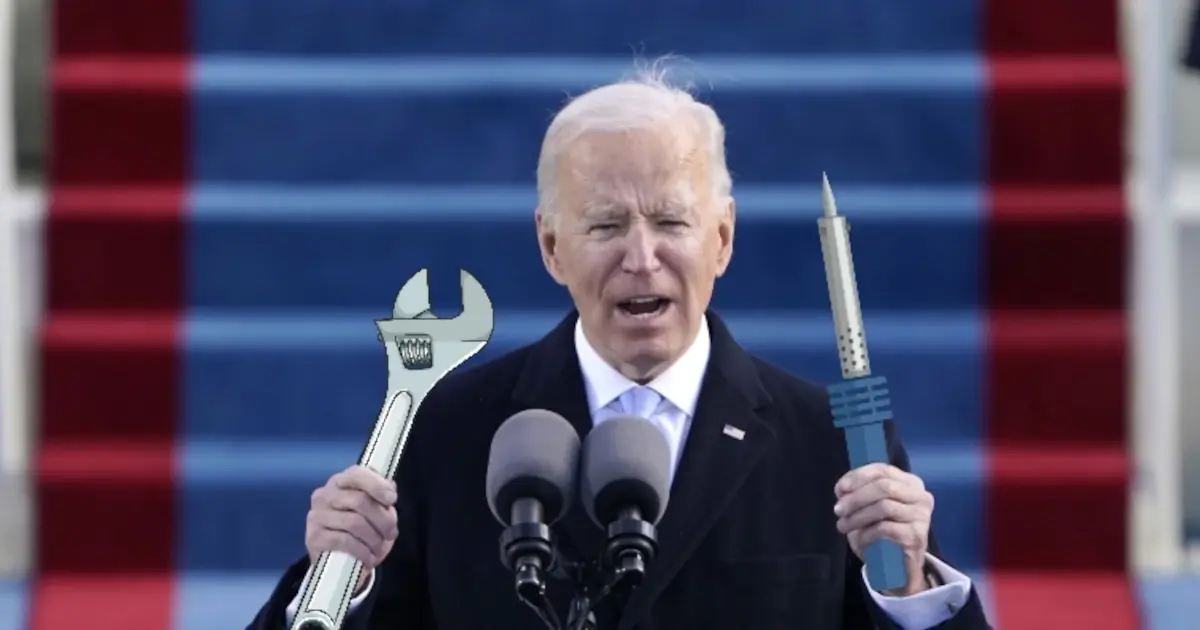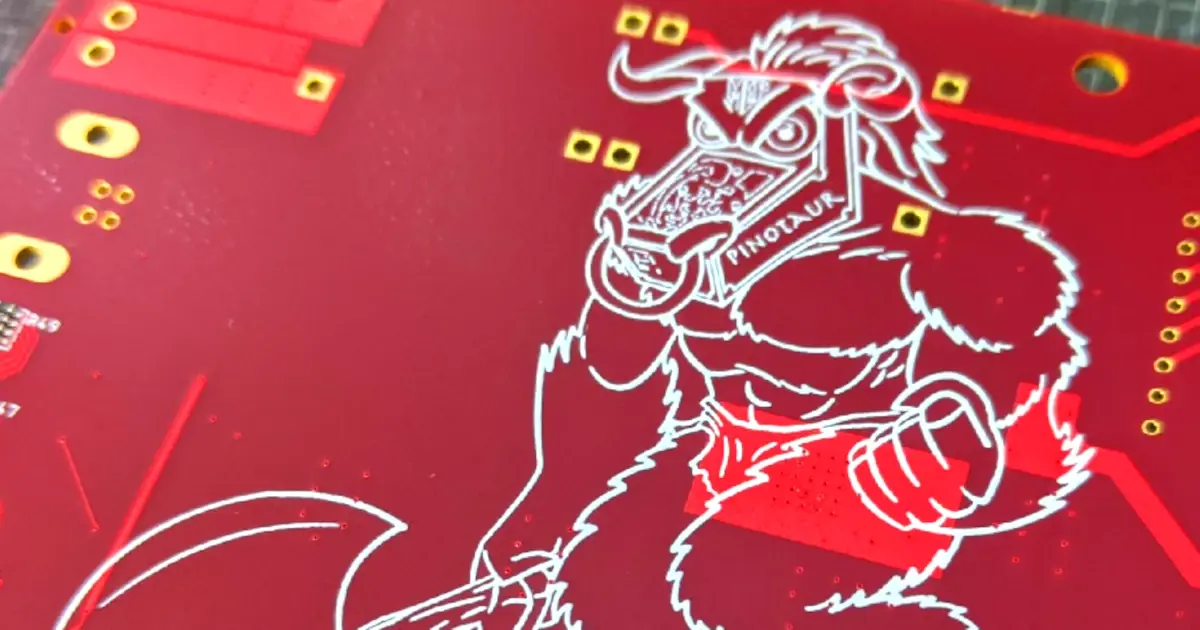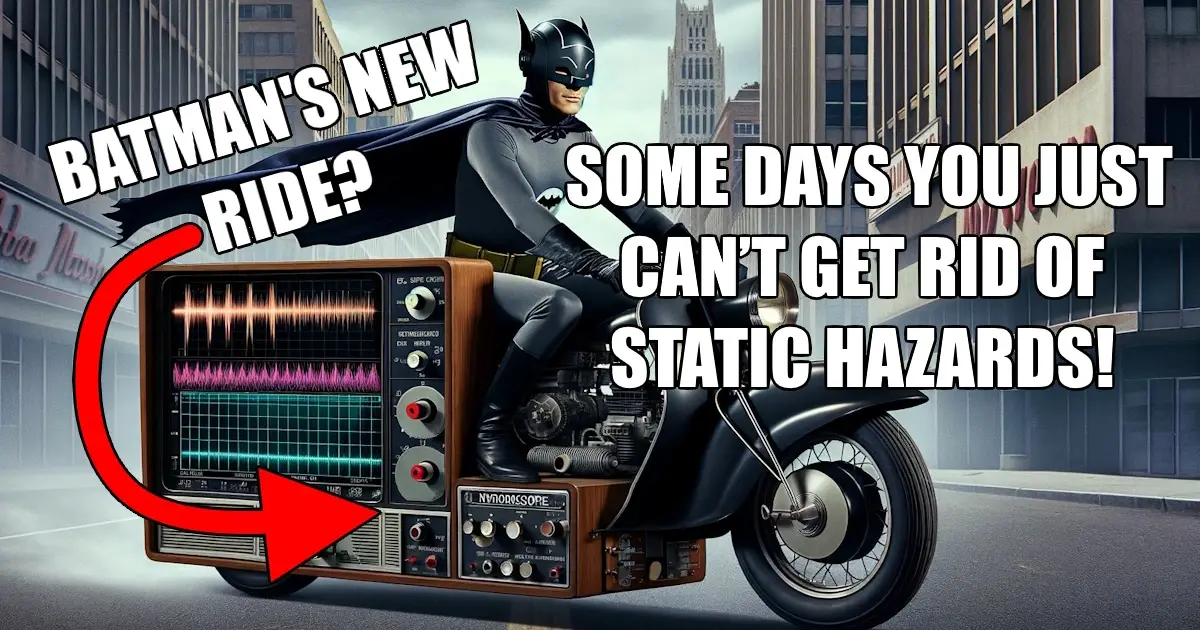Related Topics
Holy Static Hazard Batman!
Parker and Stephen discuss a recent article exploring how electrostatic discharge damage isn’t the only kind of static hazard digital designs can face.
FTC “Nixing The Fix” Report
Earlier this year the FTC released a report on the current status quo of repairing manufactured items. Stephen and Parker break down this report!
Let The Robots Do It
Is grinding out math problems just busy work? Is the current state of Math class curriculum hampering the real life deployment of engineering skills?
Other Resources
Circuit Break Podcast
Webinars
Videos
Tour MacroFab's ITAR-Compliant Facility
April 14, 2021, Episode #272
- Right To Repair
- Ease of opening for repairs
- This sounds great but I have some thoughts
- Reason why phones are hard to open now
- Security screws only keep out people that probably shouldn’t be opening the device anyways
- Ultrasonic welding and potting?
- Access to manuals
- What if repair manuals don’t exist for a product?
- Small and medium volume products don’t have the revenue or volume to make this kind of documentation
- Schematics, Circuit Diagrams, and Firmware Accessible
- What if the schematic is the secret sauce?
- Schematics are easily reverse engineered from a PCB assembly.
- What mechanics will be put in place to prevent cloning?
- Hardware Vs Software
- Tesla
- License
- Make all contracts clearly identify which elements of the machine are not included in the sale
- Do not allow companies to create contract language (End User License Agreements) that modify or limit support options in the future
- Most of the problems the Right to Repair movement wants to fix could be solved here
- If this was more upfront to customers then they could make a better purchasing decision
- Parts and Tools
- Make service parts and tools available at non-discriminatory pricing to equipment owners and third parties.
- Design
- Integrate Design for Repair principles into eco-design product design practices.
- DFR – Design for Recycle
- Right to Repair VS Right to be Repaired
- It’s easy to say we should have a right to repair something but is it OK to force companies to make something repairable?
- Ease of opening for repairs
- NFTs
- WUT?
- Non Fungible Token
About the Hosts

Parker Dillmann
Parker is an Electrical Engineer with backgrounds in Embedded System Design and Digital Signal Processing. He got his start in 2005 by hacking Nintendo consoles into portable gaming units. The following year he designed and produced an Atari 2600 video mod to allow the Atari to display a crisp, RF fuzz free picture on newer TVs. Over a thousand Atari video mods where produced by Parker from 2006 to 2011 and the mod is still made by other enthusiasts in the Atari community.
In 2006, Parker enrolled at The University of Texas at Austin as a Petroleum Engineer. After realizing electronics was his passion he switched majors in 2007 to Electrical and Computer Engineering. Following his previous background in making the Atari 2600 video mod, Parker decided to take more board layout classes and circuit design classes. Other areas of study include robotics, microcontroller theory and design, FPGA development with VHDL and Verilog, and image and signal processing with DSPs. In 2010, Parker won a Ti sponsored Launchpad programming and design contest that was held by the IEEE CS chapter at the University. Parker graduated with a BS in Electrical and Computer Engineering in the Spring of 2012.
In the Summer of 2012, Parker was hired on as an Electrical Engineer at Dynamic Perception to design and prototype new electronic products. Here, Parker learned about full product development cycles and honed his board layout skills. Seeing the difficulties in managing operations and FCC/CE compliance testing, Parker thought there had to be a better way for small electronic companies to get their product out in customer's hands.
Parker also runs the blog, longhornengineer.com, where he posts his personal projects, technical guides, and appnotes about board layout design and components.

Stephen Kraig
Stephen Kraig is a component engineer working in the aerospace industry. He has applied his electrical engineering knowledge in a variety of contexts previously, including oil and gas, contract manufacturing, audio electronic repair, and synthesizer design. A graduate of Texas A&M, Stephen has lived his adult life in the Houston, TX, and Denver, CO, areas.
Stephen has never said no to a project. From building guitar amps (starting when he was 17) to designing and building his own CNC table to fine-tuning the mineral composition of the water he uses to brew beer, he thrives on testing, experimentation, and problem-solving. Tune into the podcast to learn more about the wacky stuff Stephen gets up to.
Special thanks to whixr over at Tymkrs for the intro and outro!
Related Podcasts

Don’t Worry About It
Right to Repair is going global and Stephen might have solved his injection molded component's void by tweaking the mold design.

FTC “Nixing The Fix” Report
Earlier this year the FTC released a report on the current status quo of repairing manufactured items. Stephen and Parker break down this report!

Let The Robots Do It
Is grinding out math problems just busy work? Is the current state of Math class curriculum hampering the real life deployment of engineering skills?

Illuminati Moment
Is there a statue of limitations on open source hardware projects? This week, Stephen and Parker dive into what open source means for both of them.

The Right to Repair
What is the Right to Repair and what could be the impacts for electrical engineers, designers, contract manufactures and component suppliers.

Holy Static Hazard Batman!
Parker and Stephen discuss a recent article exploring how electrostatic discharge damage isn’t the only kind of static hazard digital designs can face.
About MacroFab
MacroFab offers comprehensive manufacturing solutions, from your smallest prototyping orders to your largest production needs. Our factory network locations are strategically located across North America, ensuring that we have the flexibility to provide capacity when and where you need it most.
Experience the future of EMS manufacturing with our state-of-the-art technology platform and cutting-edge digital supply chain solutions. At MacroFab, we ensure that your electronics are produced faster, more efficiently, and with fewer logistic problems than ever before.
Take advantage of AI-enabled sourcing opportunities and employ expert teams who are connected through a user-friendly technology platform. Discover how streamlined electronics manufacturing can benefit your business by contacting us today.